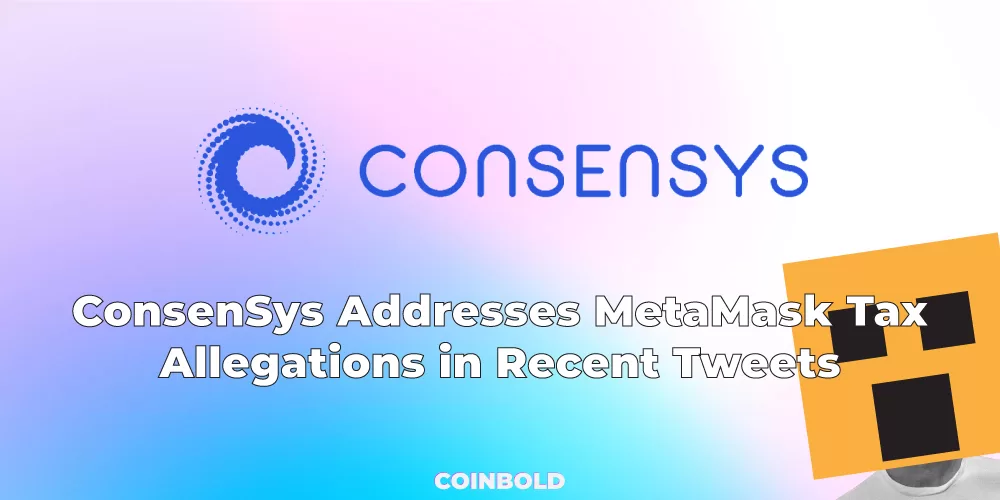MetaMask has denied rumors that it collects taxes on cryptocurrency transactions, addressing the issue on Twitter. A misunderstanding occurred because of a misinterpretation of MetaMask’s terms of service, which led to unnecessary worry among its users. ConsenSys, the parent company of MetaMask, clarified the situation on social media, categorically denying the claims.
📢 We are aware of tweets circulating with inaccurate information about ConsenSys' terms of service.
Let's clarify one thing upfront: MetaMask does NOT collect taxes on crypto transactions and we have not made any changes to our terms to do so.
This claim is false.
— Consensys (@Consensys) May 21, 2023
ConsenSys emphasized that there have been no changes to the company’s terms of service to enable it to collect taxes on cryptocurrency transactions. The confusion arose because of a reference to taxes in a section of MetaMask’s terms and conditions, which pertained only to products subject to sales tax, such as Infura’s credit card developer subscriptions. ConsenSys clarified that the terms did not apply to MetaMask or any other products unrelated to sales tax.
ConsenSys is committed to countering misunderstandings about its products and services, underscoring the importance of accurate information for users. The company has faced criticism in the past over its terms and conditions, such as an updated privacy policy in November, which had users concerned about additional data collected by Infura. ConsenSys promptly revised the policy, clarifying that MetaMask only collects IP data for routing purposes.
Moreover, ConsenSys reported a data breach in April, affecting about 7,000 MetaMask users, who are among its 20 million user base. The company has taken measures to protect its users from scammers, hackers, and phishing attacks.
While the crypto markets fell slightly during Monday’s Asian trading session, with a 1.4% drop in total capitalization to $1.16 trillion, both Bitcoin and Ethereum remained relatively stable. ConsenSys aims to provide accurate information and protect its users amidst cryptocurrency’s changing landscape.
Compiled by Coinbold







